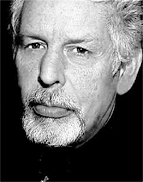 Richard Lourie
Richard LourieThe Middle East in general and Syria in particular have provided such riveting political drama recently that even the whereabouts and actions of U.S. intelligence leaker Edward Snowden were knocked from the headlines. But Snowden is back. Two stories connected with him dominated page 4 of the Sept. 18 edition of The New York Times. Nominated by the European Parliament, Snowden is among the contenders for this year's Sakharov Prize for Freedom of Thought. His chief rival for the award is Malala Yousafzai, the Pakistani girl shot in the head by the Taliban in October 2012 for daring to attend school and speaking out for girls' education. In some respects, her nomination is the easier, less political choice because her case is so unambiguous. Her intentions were pure and her enemy despicable.
Snowden, of course, is a trickier proposition. In the opening paragraph, The New York Times piece identifies Snowden as "either the N.S.A. whistle-blower or a traitor, depending on one's perspective." He has not been charged with treason, and it is only impeccable patriots such as former U.S. Vice President Dick Cheney who have termed him a traitor. Still, there is no question that Snowden is a thief who betrayed the trust placed in him.
Sakharov, even when he turned against the Soviet system, remained true to his oath taken as a scientist working on the hydrogen bomb not to reveal any secrets connected with that work. But Snowden is also clearly a hero, especially to young Americans between the ages of 18 and 34, 70 percent of whom think Snowden has done a "good thing." The same sentiment was stated more eloquently by Daniel Cohn-Bendit of France and Rebecca Harms of Germany, leaders of the European Parliament's Green faction who said "Snowden has risked his freedom to help us protect ours."
There is, however, no argument about Snowden's effectiveness. He has gotten the whole world talking about surveillance, intrusion and privacy. The political arena has been influenced as well. The other page 4 story concerned Brazilian President Dilma Rouseff's postponement of her state visit to Washington because of information that Snowden revealed about the U.S. spying on her, her top aides and the oil company Petrobras.
There are questions about Snowden whose answers will remove some of the ambiguity that clings to him. Why was he in touch with the Russian consulate in Hong Kong before he flew to Moscow? Did he make a deal with the Russians in exchange for asylum? Would he be willing to return to the U.S. to face theft charges if the two espionage charges were dropped and he was guaranteed that no other charges would be brought against him?
Pundits often point out that great moral champions like Martin Luther King Jr. and Sakharov stood their ground and never sought to elude punishment. But Snowden lives by a different myth. He's a trickster, not a classic hero.
Like the stance that politicians and public figures took on the U.S. decision to go to war in Iraq in 2003, the stance they now take on Snowden will haunt and define them for years.
It is bitterly ironic that Snowden has been given asylum by a former colonel in the KGB, an organization that tormented Sakharov for years. What would Sakharov, that shy but fearless man, say about Snowden being awarded the prize that bears his name? My guess is that after scrupulous soul-searching, he'd come down on the side of freedom of information over state security.
Richard Lourie is author of "The Autobiography of Joseph Stalin" and "Sakharov: A Biography."
A Message from The Moscow Times:
Dear readers,
We are facing unprecedented challenges. Russia's Prosecutor General's Office has designated The Moscow Times as an "undesirable" organization, criminalizing our work and putting our staff at risk of prosecution. This follows our earlier unjust labeling as a "foreign agent."
These actions are direct attempts to silence independent journalism in Russia. The authorities claim our work "discredits the decisions of the Russian leadership." We see things differently: we strive to provide accurate, unbiased reporting on Russia.
We, the journalists of The Moscow Times, refuse to be silenced. But to continue our work, we need your help.
Your support, no matter how small, makes a world of difference. If you can, please support us monthly starting from just $2. It's quick to set up, and every contribution makes a significant impact.
By supporting The Moscow Times, you're defending open, independent journalism in the face of repression. Thank you for standing with us.
Remind me later.





